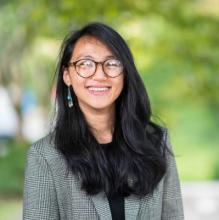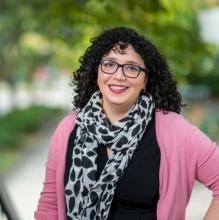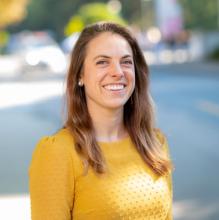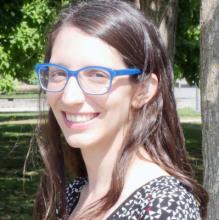My research focuses on human rights and conservation, exploring pathways for fostering win-win solutions for people and biodiversity. I partner with communities in the Indian Himalaya to examine how local forest managers are exercising their rights and stewardship responsibilities in a rapidly changing mountain landscape.
Research Description
Broadly, I’m interested in making conservation work better for people. Despite a global expansion of the protected area network in the last few decades, countries have consistently fallen short on international commitments to equitable governance (under, e.g. the Aichi Biodiversity Targets, 2020), and biodiversity loss continues to accelerate alarmingly. Given these challenges, my research focuses on how conservation decisions are made, who is involved, and how are their rights accounted for? Employing mixed methods from the social sciences, my dissertation research considers how the stewardship rights of Indigenous Peoples and Local Communities are recognized and exercised in van panchayat community forests in Uttarakhand, India, one of the oldest examples of decentralized resource co-management in the world. In remote Johar Valley, I examine how well existing regulatory frameworks enable individual van panchayats to contribute to the larger conservation landscape, and how people’s perceptions of change, of wildlife, and of stewardship affect their forest decision-making. The goal of this study is to learn how conservation policies can better protect biodiversity while respecting and promoting the rights of stewarding communities.
What does being a Public Scholar mean to you?
To my mind, public scholarship is about using academic research as a tool to make the world a better place. Actualizing the potential for doctoral work to contribute to the public good requires bridging academia and decision-making processes by engaging with the relevant stakeholders and rights-holders throughout every stage of the research process. Simply publishing good research is not enough to achieve the necessary developments in policy, enhanced awareness of important issues, and improved relationships between researchers and communities. Public Scholars go beyond publishing or presenting at conferences: we conduct research in partnership with local communities, we write and distribute policy briefs, and so much more. Fundamentally, I envision public scholarship as a solution-oriented, community-engaged, and transparent approach to research and learning.
In what ways do you think the PhD experience can be re-imagined with the Public Scholars Initiative?
Doctoral research holds critical insights for addressing some of the most pressing issues of our time, but these lessons often remain within insular academic circles. Re-imagined with the PSI, the doctoral dissertation does not sit on a dusty shelf, but becomes a useful, actionable, and accessible tool for solving real-world problems. Further, the PSI also imagines a different kind of graduate student experience: the PhD student, far from the lone thinker pondering in solitude, is a scholar embedded in a network of peers and community. She listens to and learns from non-academics when designing her research, is responsible to those interested in and affected by her work, and engages with the broader public to communicate her findings accessibly. Sharing the experience in these ways also ensures that she is not isolated, but has the support, validation, and critical feedback necessary to conduct better research and remain motivated throughout her program. Ultimately, I believe the PSI is a much more societally valuable and personally rewarding way to frame the doctoral degree program.
How do you envision connecting your PhD work with broader career possibilities?
I plan to return to the conservation non-profit sector after earning my doctorate. Prior experience has taught me that nonprofit leadership is not only about big ideas, but the ability to carry them out. This requires good metrics and a critical eye to the impact of programs on partner communities and target ecosystems. In carrying out fieldwork for my doctoral dissertation in Uttarakhand, India, I am gaining invaluable experience in navigating the nuances and challenges of community conservation in practice. Connections with fieldwork partners and practitioners in the host organizations afford possibilities for future collaboration and learning. Back at UBC, I have the opportunity to connect with scholars and practitioners working in conservation and climate adaptation, establishing a professional network through side projects. It is my hope that graduate school will allow me to develop the tools and networks necessary for transitioning into a leadership role in my field outside academia.
How does your research engage with the larger community and social partners?
My fieldwork is conducted in partnership with government entities and local community organizations: In Uttarakhand, India, I collaborate with the Wildlife Institute of India — a government-directed research and policy centre dedicated to conservation scholarship and practice — and Himal Prakriti — a grassroots civil society organization focused on environmental management and community development. Because this is designed to be community-engaged research, both these partner organizations and the research participants themselves play a formative role in the research process. We conducted a first round of fieldwork in November, 2019 to January, 2020, using open-ended interviews to gain a richer understanding of the context and identify themes and issues of concern. These interviews are approached as conversations, where sharing information is a two-way street and each party has a chance to shape the direction of the work. In this way, we work together to ensure that my research questions and study design meet community priorities and local ethics expectations. Opportunities to share results and insights from the research also help foster this exchange. Wherever possible, I seek feedback from partners and participants, while also respecting any capacity limitations and making efforts to minimize the burden of labour associated with this work. As the study progresses, another key goal will be engaging with policymakers (within and beyond the government partner bodies) by producing locally appropriate policy briefs.
Why did you decide to pursue a graduate degree?
I have worked and volunteered in the nonprofit conservation sector for almost a decade, acting in a range of capacities, from Logistics Coordinator to Education/Media Specialist. This work –– particularly a longstanding relationship with Polar Bears International, a conservation organization operating across the circumpolar Arctic –– has been professionally rewarding on many levels. However, I have felt limited in my capacity to shape larger organizational goals without more robust academic training. My interest in graduate studies stemmed from the aspiration to take on a leadership role in conservation planning and programming outside of academia. This drive, coupled with extensive field research experience as an undergraduate student in Northern Uganda, which inspired a passion for qualitative community-based research, prompted me to pursue a graduate degree. I believe that with more tools at my disposal, I will be better equipped to guide the agenda of well-intentioned initiatives — in the nonprofit sector or in policymaking — towards programs which have tangible benefit for communities and contribute to better ecological outcomes.
Why did you choose to come to British Columbia and study at UBC?
In applying to graduate school, I sought an interdisciplinary environment with a commitment to applied and problem-oriented research. The Institute for Resources, Environment, and Sustainability at UBC offered exactly what I was looking for in this capacity: UBC is a world leader in my field, situated in a city where the conversation around Indigenous rights and the environment is arguably at its most progressive. I have been overwhelmed by the passion and academic caliber of my peers and faculty at IRES. Many academics in our department are actively involved in work beyond the university, and I am inspired by their commitment to balancing academic and practical work. I am fortunate to work with accomplished and supportive committee members: Dr. David Boyd is recognized for his contributions to the field of human rights and the environment, and is well suited to inform the legal analysis component. Dr. Janette Bulkan has decades of experience working with Indigenous communities on co-management projects, and is well versed in the challenges and obligations of Indigenous research. Dr. Terre Satterfield has published extensively on the social dimensions of conservation, and lends a wealth of experience in interdisciplinary social sciences. Dr. Ramesh Krishnamurthy of the Wildlife Institute of India offers insight into the protected area context in India, in addition to contributing an ecological view on the research. Other UBC research groups, including the Himalaya Program and the Indigenous Community Planning school, offer specific resources and courses that I can draw on to support my research goals. Alongside these resources and faculty guidance, the IRES focus on interdisciplinary graduate work provides a supportive and rigorous environment to pursue my research.
Public scholarship is about using academic research as a tool to make the world a better place. Actualizing the potential for doctoral work to contribute to the public good requires bridging academia and decision-making processes by engaging with the relevant stakeholders and rights-holders throughout every stage of the research process.




